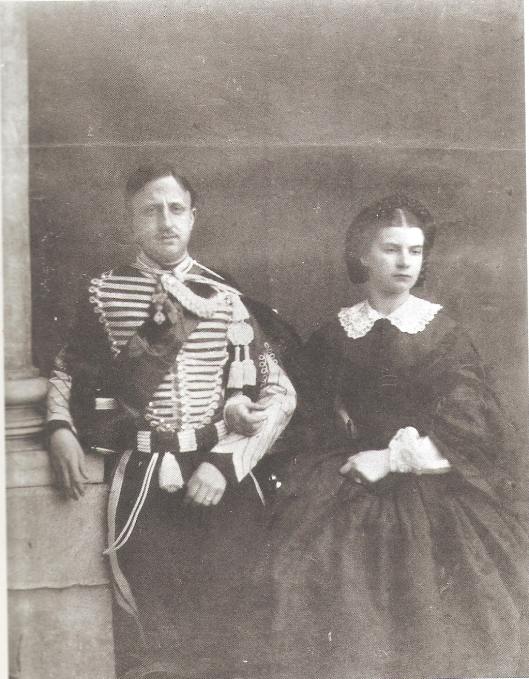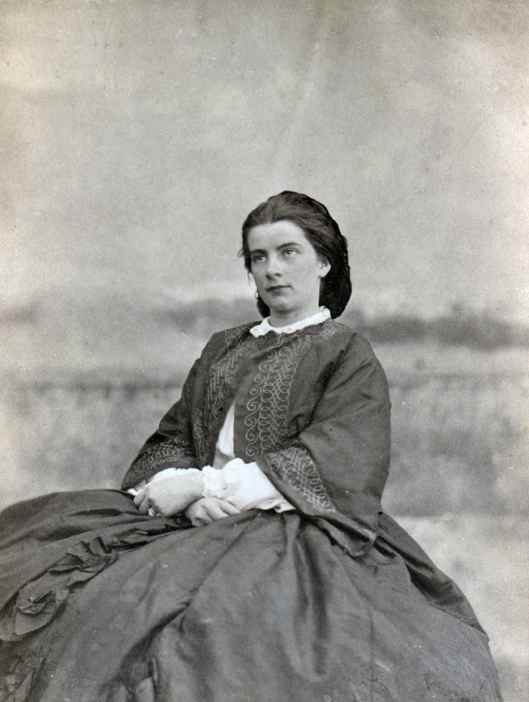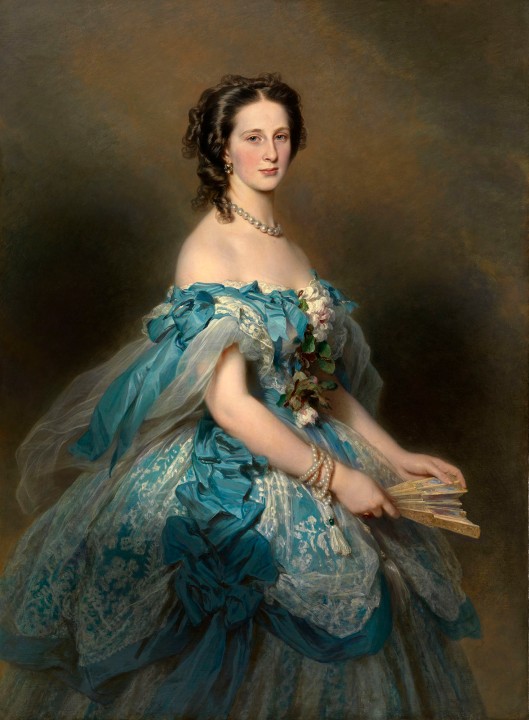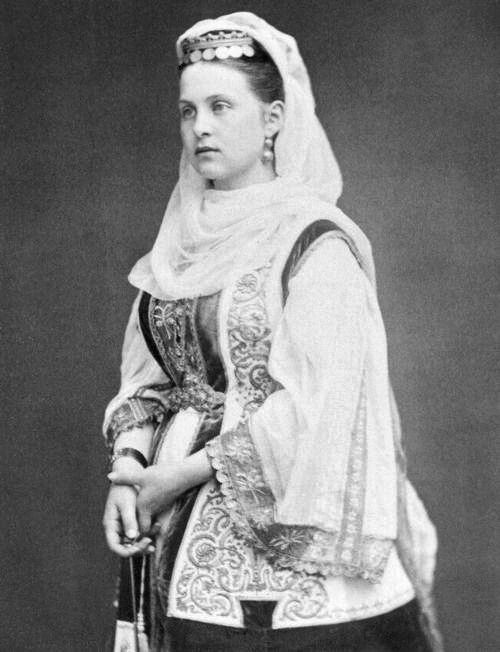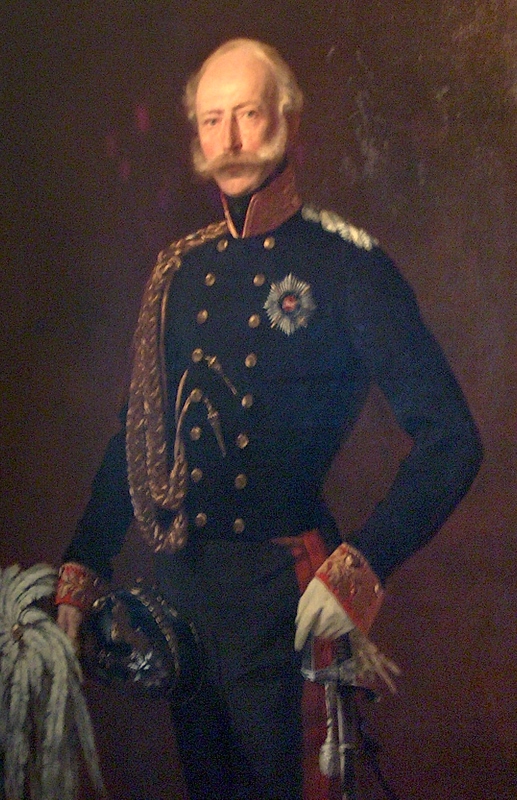Lady Margaret Beaufort (May 31, 1441/43 – June 29, 1509) was a major figure in the Wars of the Roses of the late fifteenth century, and mother of King Henry VII of England, the first Tudor monarch.
Origins
She was the daughter and sole heiress of John Beaufort, Duke of Somerset (1404–1444), a legitimised grandson of John of Gaunt, 1st Duke of Lancaster (third surviving son of King Edward III) by his mistress Katherine Swynford.
Lady Margaret’s mother was Margaret Beauchamp (c. 1410 – before 3 June 1482) was the oldest daughter of Sir John Beauchamp, de jure 3rd Baron Beauchamp of Bletsoe, and his second wife, Edith Stourton.
Lady Margaret was born at Bletsoe Castle, Bedfordshire, either on May 31, 1441 or, more likely, on May 31, 1443. The day and month are not disputed, as she required Westminster Abbey to celebrate her birthday on May 31.
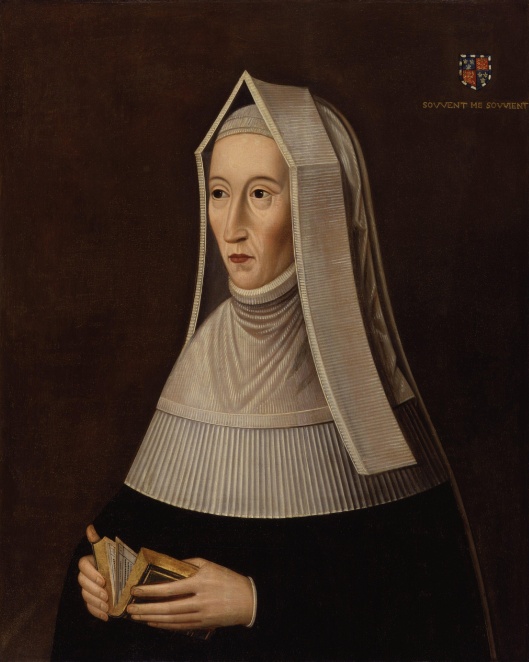
The year of her birth is more uncertain. William Dugdale, the 17th-century antiquary, suggested that she had been born in 1441, based on evidence of inquisitions post mortem taken after the death of her father. Dugdale has been followed by a number of Lady Margaret’s biographers; however, it is more likely that she was born in 1443, as in May 1443 her father had negotiated with the king concerning the wardship of his unborn child should he die on campaign.
As a descendant of King Edward III, Lady Margaret passed a disputed claim to the English throne to her son, Henry Tudor. Capitalising on the political upheaval of the period, she actively manoeuvred to secure the crown for her son.
Her descent from Edward III is from his son John of Gaunt, Duke of Lancaster.
All English monarchs beginning with Henry IV are descended from John of Gaunt. His direct male line, the House of Lancaster, would rule England from 1399 until the time of the Wars of the Roses. Gaunt is also generally considered to have fathered five children outside marriage: one early in life by a lady-in-waiting to his mother; the others, surnamed Beaufort, by Katherine Swynford, his long-term mistress and third wife.
They were later legitimised by royal and papal decrees, but this did not affect Henry IV’s bar to their having a place in the line of succession. This disbarment from the throne of the Beaufort line makes Lady Margaret’s claim, and her son Henry Tudor, Earl of Richmond’s claim to the throne in dispute.
Lady Margaret Beaufort’s efforts ultimately culminated in Henry’s decisive victory over King Richard III at the Battle of Bosworth Field. She was thus instrumental in orchestrating the rise to power of the Tudor dynasty. With her son crowned Henry VII, Lady Margaret wielded a considerable degree of political influence and personal autonomy – both unusual for a woman of her time. She was also a major patron and cultural benefactor during her son’s reign, initiating an era of extensive Tudor patronage.
She is credited with the establishment of two prominent Cambridge colleges, founding Christ’s College in 1505 and beginning the development of St John’s College, which was completed posthumously by her executors in 1511. Lady Margaret Hall, Oxford, the first Oxford college to admit women, is named after her.
Early years
At the moment of her birth, Margaret’s father was preparing to go to France and lead an important military expedition for King Henry VI. The Duke of Somerset negotiated with the king to ensure that if he were to die the rights to Margaret’s wardship and marriage would be granted only to his wife.
As Somerset was a tenant-in-chief of the crown, the wardship of his heir fell to the crown under the feudal system. Somerset fell out with the king after coming back from France and was banished from the royal court pending a charge of treason against him. He died shortly afterwards.
According to Thomas Basin, Somerset died of illness, but the Crowland Chronicle reported that his death was a suicide. As his only surviving child, Margaret was heiress to his considerable fortune and inheritor of his contested claim to the throne. Both effectively rendered Margaret, as her biographers Jones and Underwood write, “a pawn in the unstable political atmosphere of the Lancastrian court”.
Upon her first birthday, the king broke the arrangement with Margaret’s father and granted the wardship of her extensive lands to William de la Pole, 1st Duke of Suffolk, although Margaret herself remained in the custody of her mother.
Margaret’s mother was pregnant at the time of Somerset’s death, but the child did not survive and Margaret remained the sole heir. Although she was her father’s only legitimate child, Margaret had two maternal half-brothers and three maternal half-sisters from her mother’s first marriage whom she supported after her son’s accession to the throne.
Margaret was married to Suffolk’s son, John de la Pole. The wedding may have been held between January 28, and February 7,1444, when she was perhaps a year old but certainly no more than three.
However, there is more evidence to suggest they were married in January 1450, after Suffolk had been arrested and was looking to secure his son’s future by betrothing him to a conveniently wealthy ward whose children could be potential claimants to the throne. Papal dispensation was granted on August 18, 1450, necessary because the spouses were closely related (Lady Margaret and de la Pole being the great-grandchildren of two sisters, Katherine Swynford and Philippa Chaucer, respectively), and this concurs with the later date of marriage.
Three years later, her marriage to de la Pole was dissolved, and King Henry VI granted Margaret’s wardship to his own half-brothers, Jasper and Edmund Tudor.
Margaret never recognised the marriage to de la Pole; in her will, made in 1472, Margaret refers to Edmund Tudor as her first husband. Under canon law, Margaret was not bound by her first marriage contract as she was entered into the marriage before reaching the age of twelve.
Even before the annulment of her first marriage, Henry VI chose Margaret as a bride for his half-brother, Edmund Tudor, 1st Earl of Richmond. This was likely to strengthen Edmund’s claim to the throne should Henry be forced to designate Edmund his heir; the king was then without child or legitimate siblings. Edmund was the eldest son of the king’s mother, Catherine of Valois, by Owen Tudor.
At nine years old Margaret was required to assent formally to the marriage. Later she claimed she was divinely guided to do so.
At age twelve Margaret married Edmund Tudor, twelve years her senior, on November 1, 1455. The Wars of the Roses had just broken out; Edmund, a Lancastrian, was taken prisoner by Yorkist forces less than a year later. He died of the plague in captivity at Carmarthen on 3 November 3, 1456, leaving a 13-year-old widow who was pregnant with their child.

